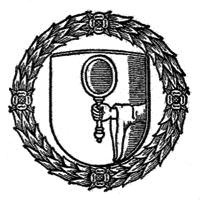 Speculum, published quarterly since 1926, was the first scholarly journal in North America devoted exclusively to the Middle Ages. It remains the premier journal for all fields devoted to study of the Western Middle Ages, a period ranging from approximately 500 to 1500. The journal has been edited in the past by the Executive Director of the Medieval Academy of America, but the organization is now seeking proposals from individuals to assume the role(s) of editor or editors.
Speculum, published quarterly since 1926, was the first scholarly journal in North America devoted exclusively to the Middle Ages. It remains the premier journal for all fields devoted to study of the Western Middle Ages, a period ranging from approximately 500 to 1500. The journal has been edited in the past by the Executive Director of the Medieval Academy of America, but the organization is now seeking proposals from individuals to assume the role(s) of editor or editors.
Speculum is the intellectual center of the Medieval Academy’s program, and editing the journal to an unfailingly high standard is a challenging and absorbing task. The main challenge for a journal that represents such an enormously diverse field is to publish articles that make substantive contributions to their areas of expertise while appealing to the wide range of scholarly interests of the medievalists in various disciplines that constitute the readership.
The editor(s) will be charged with the final responsibility for peer review and acceptance of manuscripts and book reviews for publication. The editor(s) should be established scholar(s) with academic credentials in some field(s) of medieval studies and should also possess good organizational and decision-making skills. Experience in journal or book editing is helpful but not necessary. The term of service is anticipated to be five years with the possibility of renewal by mutual agreement. The editor(s) enjoy the support and assistance of an editorial board and a board of book review editors, both representative of a broad range of methodologies and areas of specialization. There is provision for one or more editorial assistants, chosen by the editor, as well as an online manuscript-management platform. The new editor(s) should plan on taking office at the beginning of 2014.
Applications should be sent to the chair of the selection committee, Richard Unger [richard.unger@ubc.ca], Department of History, University of British Columbia, 1297-1873 East Mall, Vancouver, BC V6T 1Z1, Canada, before 15 September 2013. They should include a curriculum vitae, a statement of interest outlining editorial plans for the development of the journal, three letters of reference from scholars who can speak to the applicant’s or applicants’ editorial experience and scholarship, and an indication of the level of support that any host institution is willing to provide. The President of the Medieval Academy, Richard Unger, and the current Acting Editor of Speculum, Jacqueline Brown [jb@themedievalacademy.org] would be happy to respond to questions about the duties involved.



